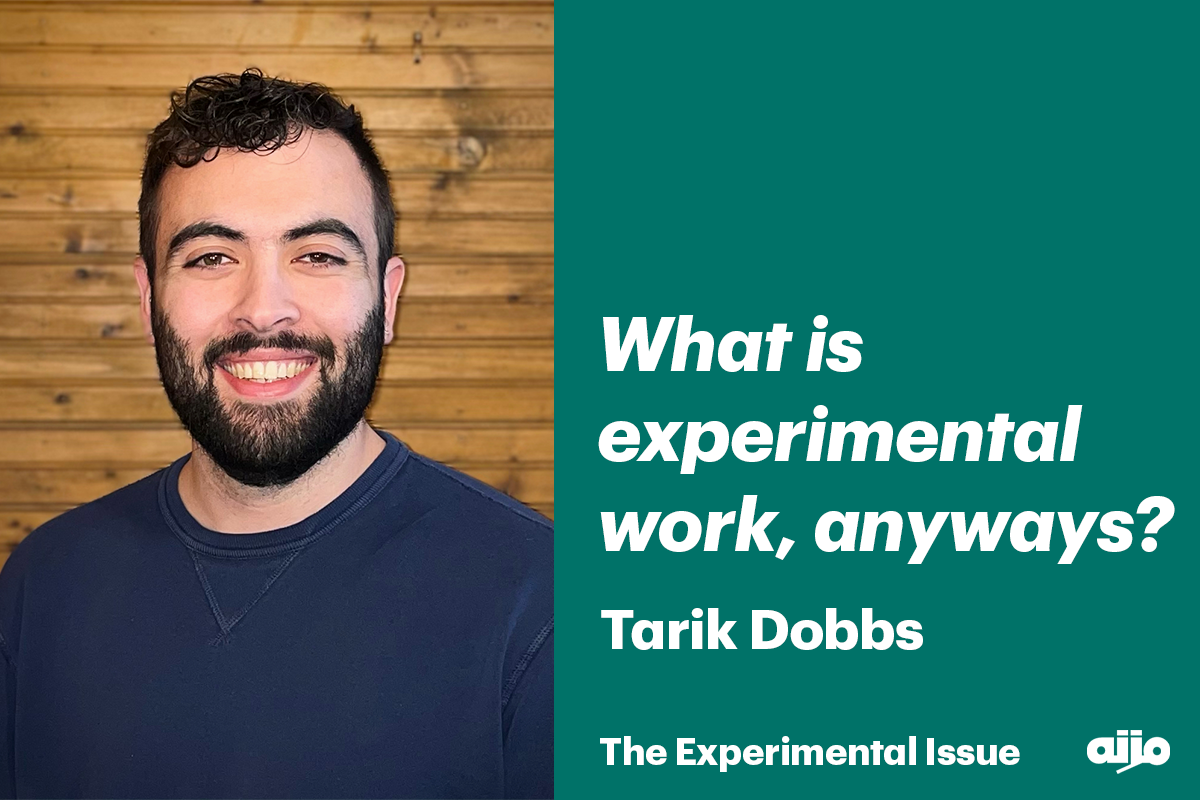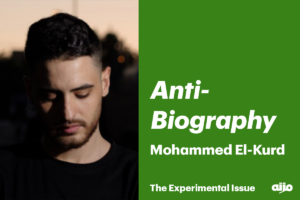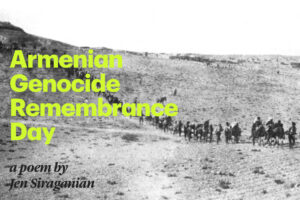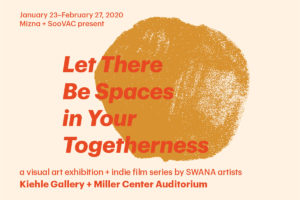
What is experimental work, anyways? Foreword to Mizna 22.2: The Experimental Issue
This text is published as part of Mizna: The Experimental Issue, guest-edited by Tarik Dobbs. Available to order here.
By Tarik Dobbs
When I asked one of my non-writer friends what they thought “experimental writing” was, they shrugged and said, “I don’t know, um, does it go crazy all over the page?” And it’s hard to resist this definition of |art| poetry. Who can resist playing in Microsoft WordArt? And maybe play is one facet of experimentation.
The internet world of Western Creative Writing™ reminds us that literary work is a highly surveilled art form where the lucky few are chosen for well-endowed awards, fellowships, and publications. And with institutional heavyweights like the Iowa Writers Workshop owing significant funding to an alias foundation of the CIA, and Elizabeth Koch—the only daughter of right-wing influencer Charles Koch, whose 2021 Forbes estimated net worth is north of $50 billion—founding the successful publisher Catapult, there’s merit to this statement. But back to the point, maybe politics is part of what sets experimental writing apart from the traditional model of literary success: there’s more risk at-hand. Maybe experimental writing pushes conservative and neoliberal political boundaries that editors are still uncomfortable with, or that institutions tacitly enforce. If a work’s politics are considered inherent to its experimentation, then experimental writing is no longer simply an aesthetic act.
* * *
When I pick up a poem, the first questions I have are usually these: What are the stakes? How is this poem grounded in the world we live in? Or the worlds that came before or after it? Is this process naive? Sure. Is this fair? Probably not.
But I propose that poetry’s power in shaping society must be written shamelessly by the author. All writing is propaganda; let’s be forward about it.
It’s not just that we need a revolution in style but also a revolution in audience, distribution, circulation, performance, perception, and, indeed, motivation.
— Charles Bernstein & Tracie Morris, “Poetry Needs a Revolution That Goes beyond Style,” introduction to Best American Experimental Writing 2016
Compiling an issue or anthology of experimental writing is a fraught project. Again, what counts as *~experimental~*? What is valued? The 2016 editors of BEX addressed a portion of the prevailing preference for work that considers visual aesthetics above all else. They write, “The exploration of identities has always been at the center of radical and exploratory poetry.” The editors make note of an important idea, but I’d like to say it plainly: What is a revolution in experimental writing, if not a massive upheaval in experimental writing’s politics? By motivation, we mean political praxis. We mean marginalized identities. Where does this leave us? How can we articulate a revolution in our writing spaces?
* * *
In this issue of Mizna, SWANA authors expand the stakes of the experimental literary canon with absurdity, humor, and imagination beyond capital-E “English.” They ask the question: Where can we go from here, now, then? We’ve googled the ancestors. We’ve read Edward Said’s Orientalism. And we’ve survive to tell the stories of various colonial projects that swell and expand across our lands.
In the poem, “Anti-Biography,” featured in this issue, Palestinian poet Mohammed El-Kurd writes:
I think identity is corny. / That would have enraged me at seventeen. / My current beliefs would have— / except for the rifles / we all agree on the rifles. // I am but the institution, the prestige, the watermelon
El-Kurd reminds me of the everyday horrors of force we may choose to write our way through. Writing not just as a reaction to violence, but as a portrait containing the fullness of our lives and the dark humor that often creates a pathway for solace and survival. To be the institution is to recognize the feeling that one’s published writing may be consumed, judged, compensated, anthologized, buried, and/or ultimately pulled away from our initial intention. It reminds me of 2017, when I read Solmaz Sharif’s Look during a poetry class with Tarfia Faizullah. Sharif’s work floored me and held my grief, especially because of its ability to evoke dark humor by pointing out the absurdity of the violent governmental systems we are subjected to.
* * *
explain how your body / has limned the (invisible) parentheses / stacking colonialism / into “coexistence” / ask, finally / if they would really / never take up arms / or is it just the thought / of you doing so / rather than being / agreeably murdered
Here, in Omar Zahzah’s poem “how to talk to (white) people who are seeing your people in the news more and feel really really bad,” no word is butchered; language is sharp, forward, and sarcastic. This is absurdity as a form of resistance, of community. We read these poems and find ourselves here, and find each other here.
So often, when we think about the stakes of SWANA writing, it feels impossible to escape the trauma in our collective histories. But the writers in this issue show us so many paths beyond this easy-for-white-readers-to-consume narrative. In his story, “Aphasia: Sun driven from our faces,” David Groulx writes:
I have a name for the darkness, no one knows, I call it
ahhhhhhhhhhhhhhhhhhhhhhhhhhhhhh
And in this, he really nails the—often terrible—absurdity of the world we live in.
* * *
Maybe I keep returning to humor because in the wake of the Beirut explosion last summer, during the sieges of the West Bank, Jerusalem, Gaza, and inner-48 Palestine, and when dealing with memories of violence against SWANA or Muslim-coded communities after 9/11, memes and jokes passed around on social media became a form of community sustenance. Yes, play is a facet of experimentation, but play can also be a thing with teeth. In editing this issue, we were searching for experimental writing that, among all else, bites back.
Tarik Dobbs (Arabic: طارق دبس, IPA: /tɐʼɾɪʜk ‘dɑbz/) is a writer and artist born in Dearborn, MI. Dobbs’s poems appear in the Best New Poets & Best of the Net anthologies, as well as Poetry Magazine. Dobbs is assistant editor of Great River Review at the University of Minnesota.










